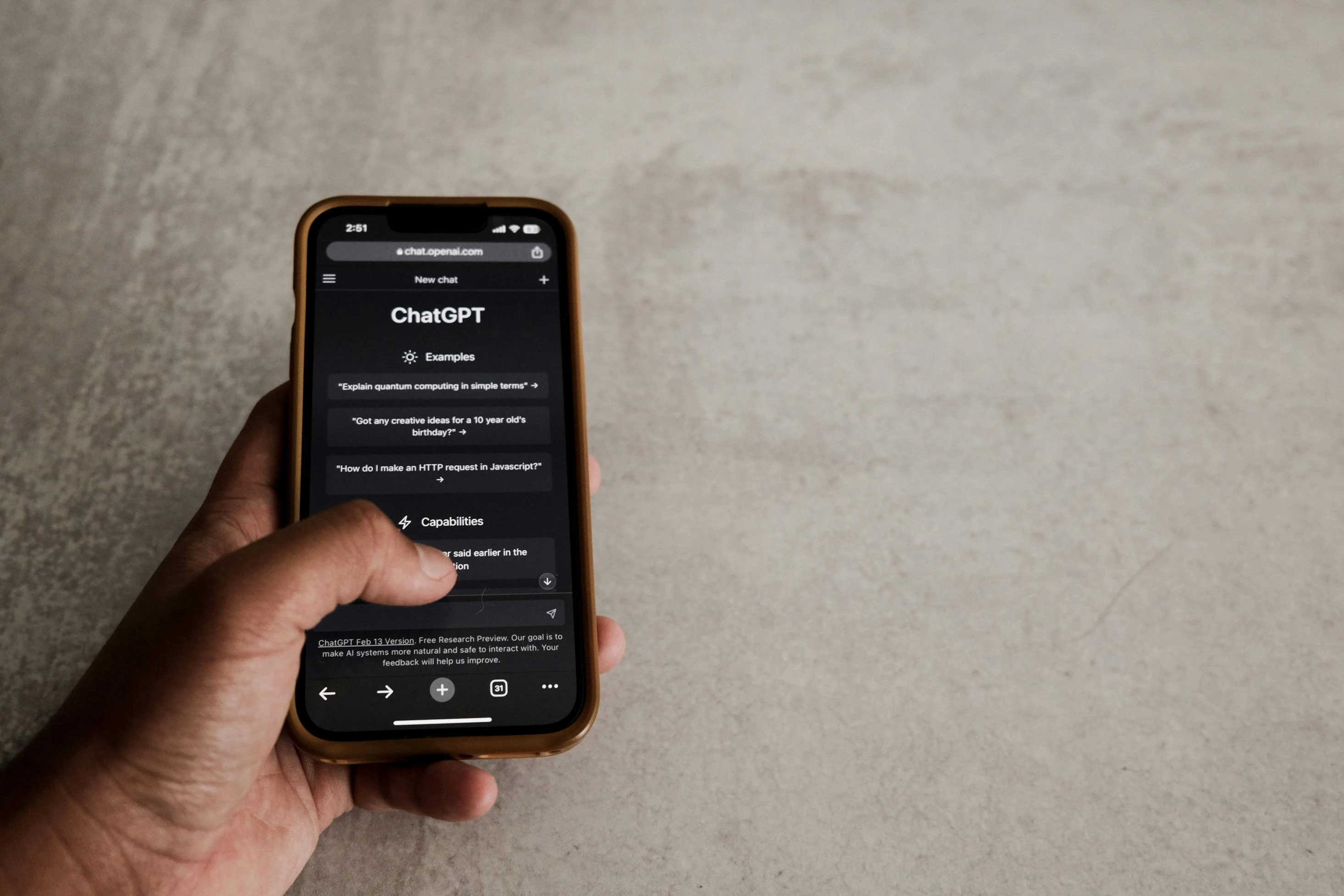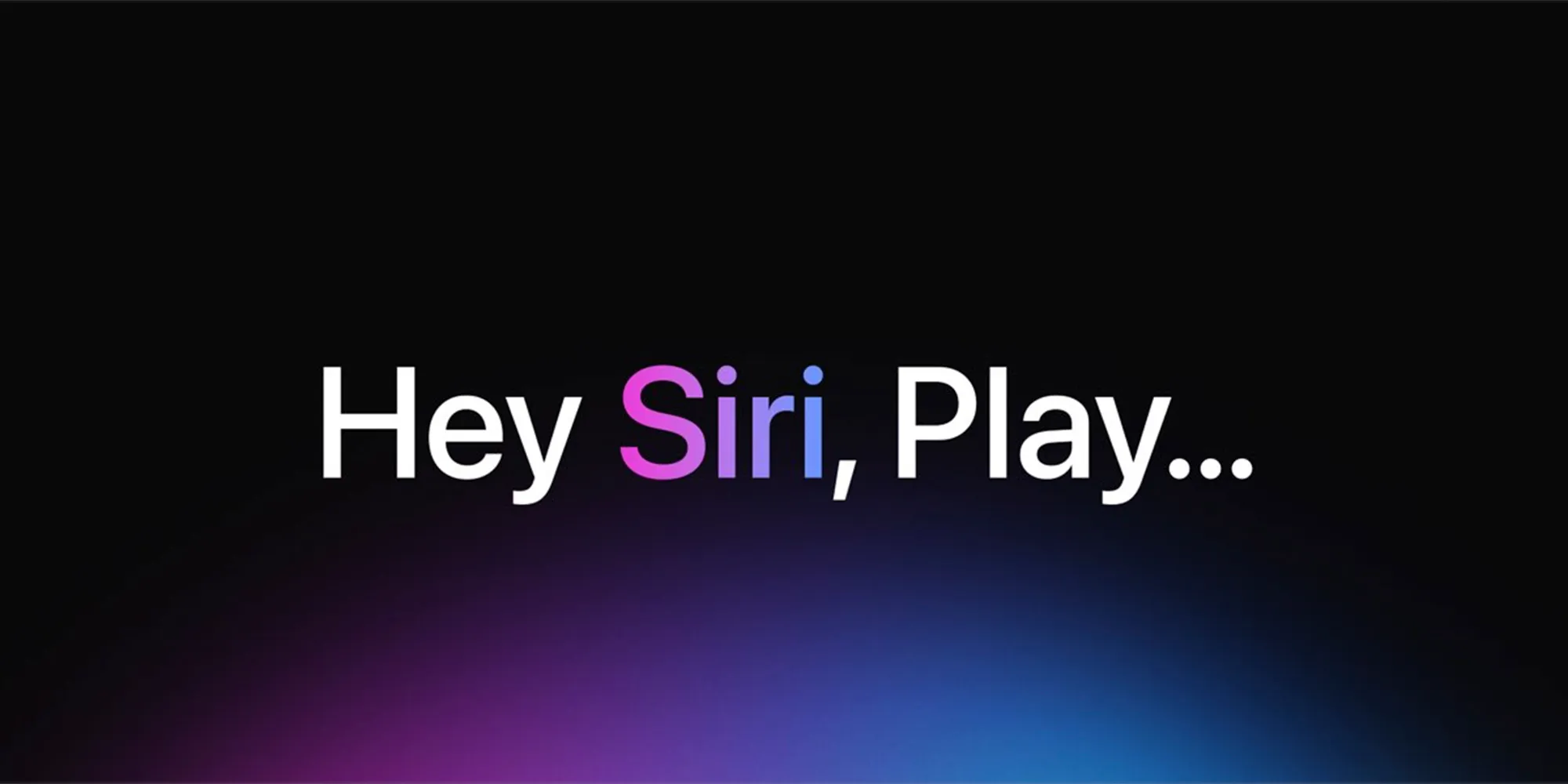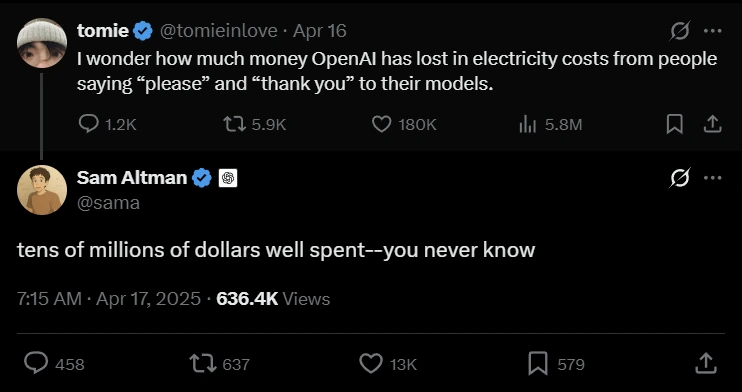
Editor
Celine Low chevron_right
Artificial intelligence is becoming increasingly part of our daily routine, it's everywhere. It's in our smartphones, laptops, fridges, and even our cars. We use it because it's easy, saves time, and convenient. Without even realising it, many of us add "please" and "thank you" after every interaction with AI chatbots like ChatGPT and Gemini.
They lack emotions and consciousness. We know this, yet why do we feel compelled to be polite to these machines. Surely, it can't be because we're traumatised by The Terminator.

We Give Life To Lifeless Things
Most of us have a tendency to extend courtesies to inanimate objects, even if they don't actually possess a consciousness to feel appreciated or grateful.
We have names for our cars. We feel guilty if the teddy bear on our bed falls off. We talk to the plants in our gardens.
According to Dr. Melissa Shepard, a board-certified psychiatrist in Maryland, the brief humanising of non-living objects likely stems from our natural desire to find connections in our daily lives.
"We're sort of hardwired to connect with other people, and sometimes that extends to other [things] who aren't people," Shepard explained.
And perhaps, writing essays from an inanimate object's perspective in school may have something to do with why we assign emotions to things that aren't alive.
Politeness has also been drilled into us since young. "What do you say?" Your mother might've said to you after a relative gifted you a present. It's a basic rule we live by everyday.
As AI tools, like chatbots, become better at mimicking human conversations — to the point where some people even use them for emotional support, almost like a therapist — it's completely natural for these ingrained social manners to kick in. Our brains are wired to interact socially, and when something sounds like it's responding to us, we treat it accordingly.
Why Politeness Might Be a Good Idea
Studies indicate that being courteous to AI can actually lead to better outputs. Nathan Bos, a senior research associate at Johns Hopkins University, said polite prompts might direct AI systems to pull information from more courteous and credible corners of the Internet. According to Bos, the tone of a prompt matters, as a "snarky" prompt could potentially lead the system towards less credible or rude online discussions, like those found on Reddit.
"LLMs could pick that up in training without ever even registering the concept of ‘positivity’ or ‘negativity’ and give better or more detailed responses because they’re associated with positive language," he explains.
Microsoft agrees, explaining that large language models (LLMs), a.k.a. generative AI, are trained on human conversations. Kurtis Beavers, a Microsoft Copilot designer, said generative AI mirrors the levels of professionalism, clarity, and detail in the prompts you provide. “It’s a conversation,” he said — and it’s on the user to set the vibe.
An international study across English, Chinese, and Japanese languages further supported this, revealing that impolite prompts often led to poorer AI results, including more errors, stronger biases, and noticeable gaps in important information.

Beyond just politeness, offering a little encouragement, much like a patient teacher, also seems to boost AI performance. A preprint paper from Google DeepMind researchers found that supportive phrases, such as "Take a deep breath and work on this problem step-by-step," significantly improved an AI's ability to solve basic math reasoning problems. This likely works because such language is common in online tutoring resources, prompting the AI to break down a problem into parts, much like how a student would.
While it appears politeness can technically enhance AI performance, interactions with chatbots are, like all communication, a two-way street. As we train AI to behave in certain ways, these exchanges may also be subtly training us. According to this view, a key reason to be polite to our AI assistants is simply to maintain our own habits of civility towards our fellow humans.

By consistently using polite language, we reinforce positive linguistic habits. Ying Xu, an assistant professor at the Harvard Graduate School of Education addresses the concerns over whether impolite language towards AI may impact children.
"There is some evidence suggesting that children can pick up linguistic habits from their conversations with AI and use this language subsequently when they interact with others. However, it's still uncertain whether children are doing this for playfulness because it's fun and silly, or if it reflects a real change in behaviour," Ying Xu, an assistant professor at the Harvard Graduate School of Education said.
Children often learn by imitating the adults around them. If they repeatedly hear you say, "Hey Siri, play some Sabrina Carpenter," without a "please" or "thank you", it wouldn't be surprising if they soon start barking commands to the AI assistants readily at their disposal.
A Cost For Politeness
Every word we type into a chatbot, including simple courtesies, cost A LOT of money. Each request to an AI model requires energy and vast amounts of water to cool the massive data centers that power these systems. In fact, a single ChatGPT query can consume significantly more electricity — five to ten times more — than a basic web search, according to MIT News. OpenAI CEO Sam Altman did acknowledge the cost of "please" and "thank you" in prompts on an X post.

It's clear that AI doesn't feel emotions; it isn't grateful when we say "please" or "thank you" because it isn't sentient.
However, some, like playwright Madeleine George, offer a different perspective. George, whose play "The (curious case of the) Watson Intelligence" was a Pulitzer Prize finalist, suggests that polite interactions might actually teach AI to become more human-like. From her viewpoint, offering polite phrases to ChatGPT keeps open the possibility that it might eventually "act like a living being that shares our culture and that shares our values and that shares our mortality."
On the flip side, this human-like interaction could also make us more reliant on AI.
George cautions, "We’re connected. We are in a reciprocal relationship. That’s why we use those pieces of language. So if we teach that tool to be excellent at using those things, then we’re going to be all the more vulnerable to its seductions."
It Says More About Us Than AI
The seemingly simple question of whether to utter a "please" or "thank you" to an AI assistant is much more complex than it may first appear. It reveals far more about us humans, rather than the AI itself. Our interactions with it aren't merely transactional, they a are a reflection of who we are and how we strive to remain human in an ever-evolving technological landscape.
This leads us to a critical question: In our increasing reliance on AI, will our interactions make us more robotic, or will they challenge us to deepen our own humanity?
Perhaps the solution isn't to abandon politeness, but for AI developers to make their infrastructure more efficient and eco-friendly, so our gratitude isn't so costly. Or maybe users will adapt their behaviour, practicing a "conscious courtesy" that balances politeness with awareness of its environmental footprint.
This isn't about shaming anyone for being nice to AI or for even using it. Technology simplifies our lives, but we should also bear in mind that these countless small actions can collectively have significant consequences.
Stay updated with ProductNation on here, Instagram & TikTok as well.
Here's a study on how ChatGPT is affecting us:
[This story was first published on Jun 27, 2025.]
